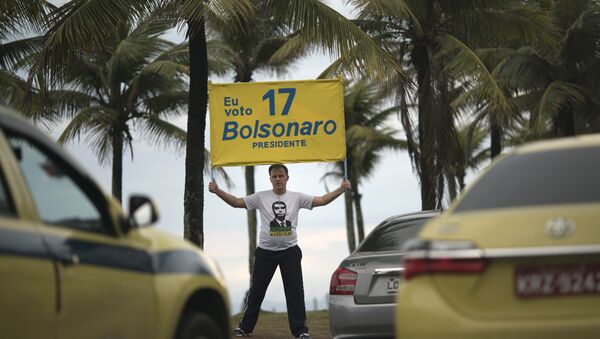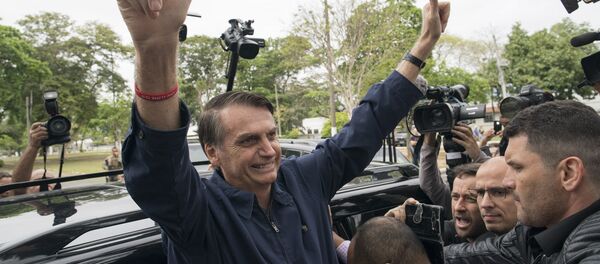Sputnik has discussed this with Monica Arruda de Almeida, Adjunct Professor at the Center for Latin American Studies at Edmund A. Walsh School of Foreign Service at Georgetown University.
Sputnik: Bolsonaro is leading in the polls and surveys with people of color and LGBT community also throwing their support behind the candidate. What do you make of this unlikely backing?
Monica Arruda de Almeida: I think to me it's clear that it's very hard to make a case that Bolsonaro is a racist. I've watched almost 20 hours of videos by him throughout the years, not just recently, and there's nothing about him to suggest that he's a racist. This is just spin and it's very unfortunate to me, as a former journalist; that I don't think the media, especially the foreign media, is doing its job and trying to understand why you have 50 million people voting for this guy and why do they just keep reproducing labels against him.
I'm not even a Bolsonaro supporter, but I wrote a piece recently about this because I think it's really unfair and it's not good journalism to be doing that; and people in Brazil, who are in Brazil and know him better, know that there's nothing about him that suggests that he's a racist.
READ MORE: 'Bolsonaro Could Become Brazil's First Social Media President' — Professor
As for the LGBT community that's a more gray zone because Bolsonaro clearly is a very conservative guy. He does hold views that one will not say that are pro-gay rights. He once said something that's just horrible, that he would rather see one of his sons dead rather than being gay, which is a horrible thing to say; but he in his actions, and even dealing with other congress members who are openly gay he has been a good partner in terms of trying to create legislation.
My hope is that if he's elected that he'll learn to tone down his speech, be conciliatory and make sure that minorities are protected and condemn in very clear words that violence against any group is disallowed.
Sputnik: What do you make of his statements in which he openly supports the military dictatorship that ruled Brazil from 1964 to 1985?
Monica Arruda de Almeida: You can interpret that in many ways. For example, something that I think is even embarrassing for me to admit, but until I was 16-17 years old I didn't even know that we were living in a dictatorship. I'm originally from Brazil and in my family what I saw my father doing extremely well during the years of dictatorship, and then later I learned that we were in a dictatorship because we would vote for governor there was transition in power at the president level, they were all generals.
READ MORE: Scholar: There's Disillusionment With Worker's Party Government in Brazil
The views expressed in this article are solely those of Monica Arruda de Almeida and do not necessarily reflect the official position of Sputnik.






